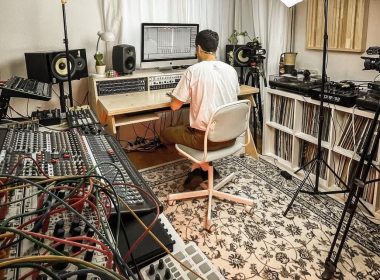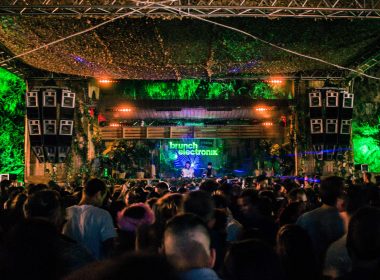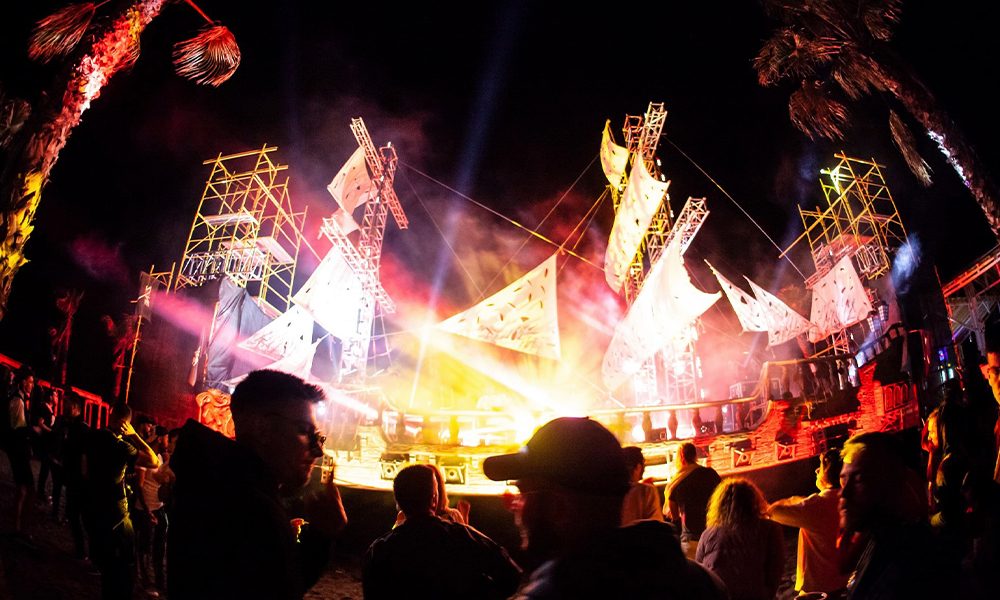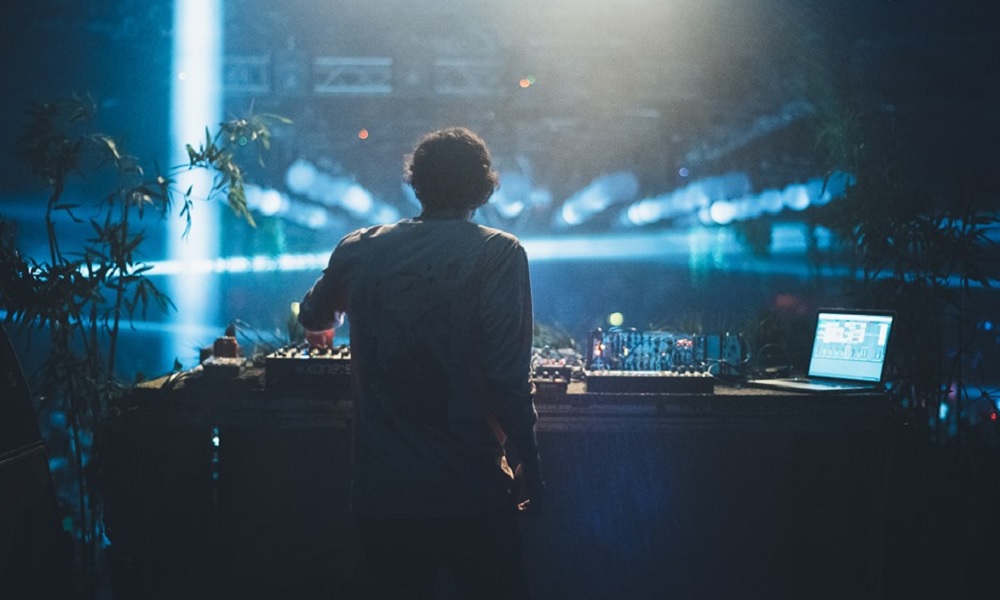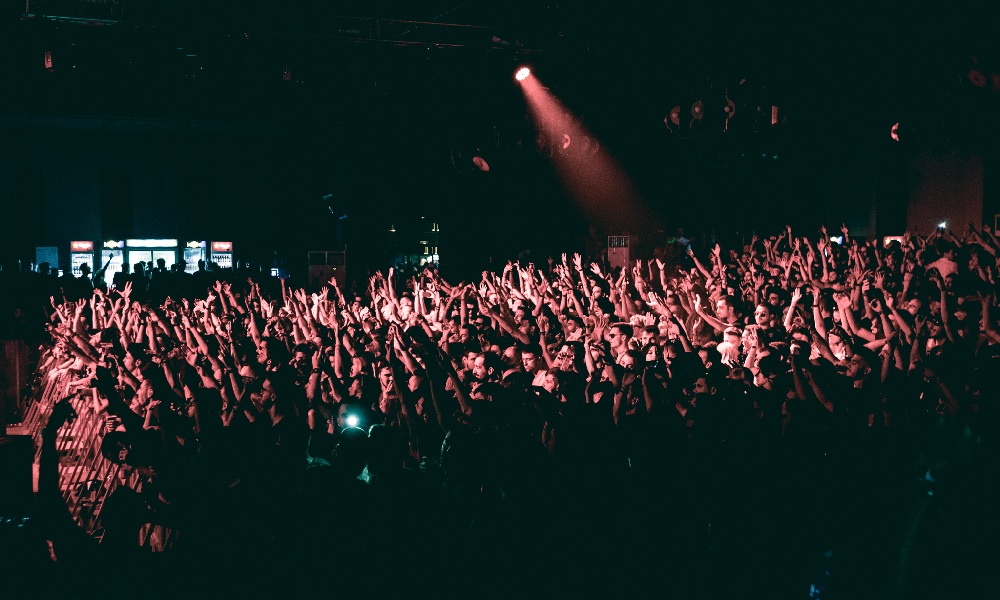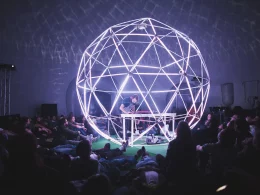A top-quality restaurant. In front of him, people dressed in dark outfits waiting to enter the lower floor, where a DJ will play the first electronic beats of the Albanian night. We’re talking about Pepper Bar, a well-known restaurant-bar in Tirana, the capital of Albania. The restaurant is located in the Blloku district, where the elites of the communist party lived during Soviet times. Today, after being modernized, it has become the coolest neighbourhood in the city.
The freelance journalist Braden Bjella explains that there is where young underground people in Tirana usually start their nights before they go by walking to Discobox at around 2 or 3 in the morning. The club hides between the buildings of the University of Arts and is another of the small nuclei in which Albanian electronic music manages to build name recognition.
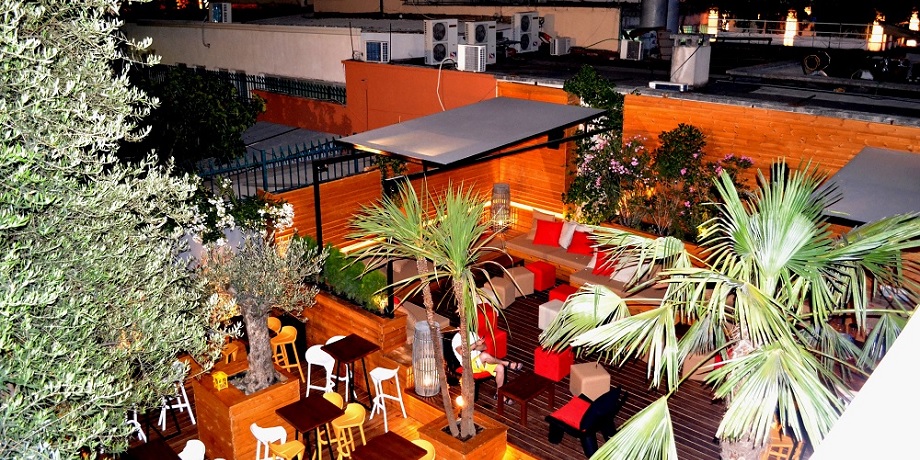
If you walk through the streets of Tirana, you will find numerous record stores and music production academies such as Prodjschool Metronom. The streets of the city host in their many empty spaces and industrial warehouses pseudo-clandestine parties. In those events, there reigns an aroma of liberation, explosion, relief after years of silence. Its communist aesthetics, its conditions and the ever-increasing energy of its inhabitants make us find in Tirana notorious similarities with the post-fall Berlin. In fact, many nickname Tirana “the new Berlin”.
Outside the capital, we are also beginning to see the consequences of the great work that anonymous heroes are doing in Albania. In June 2018, the paradisiacal beaches of Dhërmi, in the south of the country and near the Greek border, witnessed the birth of Kala. To reach the festival, the Albanian ravers had to fly to the Greek island of Corfu and, from there, travel for 4 hours by ferry and bus. Nevertheless, Kala was a success and Albania, for the first time in its history, received big names from the scene such as The Black Madonna, Peggy Gou, Moodymann, Underground Resistance or Jayda G.
Almost a year later, on May 2019, names such as Adriatique, Joseph Capriati, tINI, Ricardo Villalobos, Craig Richards, Zip or Ion Ludwig landed at the UNUM Festival, a new event that also set up bases in the north of the country, on the beaches of Shengjin, specifically in Rana and Hedhun. UNUM, like Kala, sought to transfer the resurgence of electronic music in Tirana to the still unspoilt natural landscapes that the country enjoys on its Adriatic and Ionian coasts. Crystal clear water, unexplored caves, wild jungles… Everything, far from being overcrowded, offering a traced terrain to that offered, for example, by the crowded Croatian coasts, but at ridiculously lower prices.
Albanian festivals offer complete experiences. Hotels, beaches, multiple venues, characteristic and high-profile stages, extended timetables, sightseeing tours, boat trips, building communities in which practically everything is shared… Going to a festival in Albania is like joining a new family united by the love for nature and electronic music. The “here and now” is important and they try to avoid the use of electronic devices. Kala, for example, published the running order every day in the morning and through advertisements in nearby villages, thus encouraging interaction and movement.
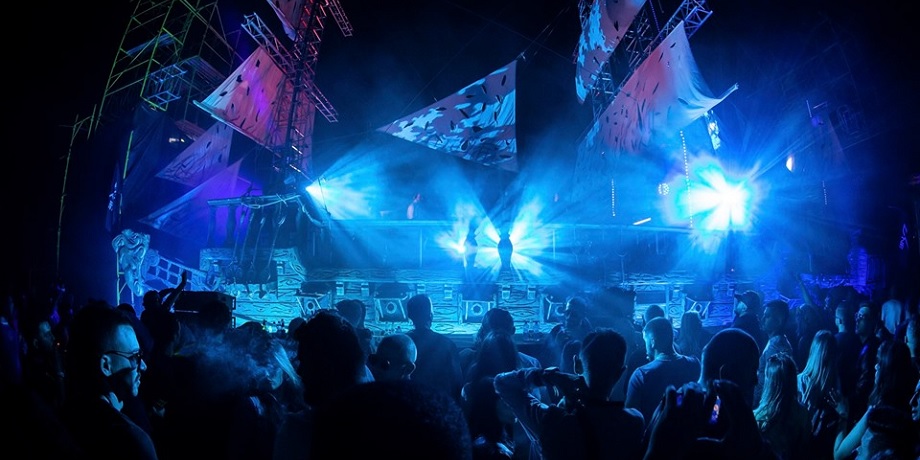
Why now and not before? Braden Bjella explains that in 1972, the Albanian Soviet government classified the organisers of the Festivali i Këngës, one of the country’s most famous and important music events, as “public enemies”. Some were fined. Others were arrested. A few even killed.
Tirana had not seen vinyl players since the years before World War II. Only the aristocrats owned them, so the rest of the population has always conceived their use with bad eyes. Now, the scene is trying to neutralize that fact with events like the Annual Record Store Day.
The Albanian status quo and music have never got a good relationship. Musical environments have never been appreciated in society. The basis on which industry tries to build its future is very poor.

The fall of communism in 1991 led Albania into a situation of conflict and political crisis. The struggle for power led to civil war and the famous Rebellion of 1997 led to the total collapse of the government. Albania officially became the poorest country in Europe, a title it still holds today.
Already in the 21st century, those Albanian producers or DJs who stand out in the night scene have immediately gone abroad to try to find a better future. Only a few who are related to the more alternative sounds have remained in Tirana, trying to give birth to what is already beginning to shine today: a local industry with something to be proud of and to show to the world.
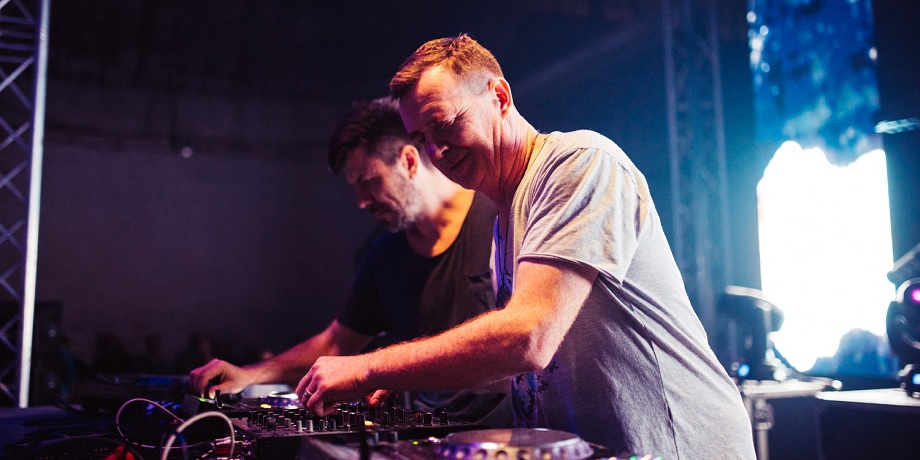
We face almost the third decade of the century and Albania finally enjoys political, economic and social stability. The country’s growth is slow, but positive and steady. Many emigrants decided to return to their homeland, now that they have been able to save some money in neighbouring states. This, in turn, favours the local economy and the purchasing power of the Albanians. It is precisely in this phenomenon that Albanian DJs see an opportunity for the industry.
Albania is also located in a transit area around important tourist destinations for the clubbing movement such as Greece or Croatia. “Approximately half of the people I met were passing through, while the other half had travelled from their homes on purpose”, says V.P., an attendee at the first edition of UNUM. “There were a lot of English people, especially from Manchester, and also a lot of people from nearby countries like Macedonia or Kosovo”, she told us.
About the music, she explains that the general tone of the festival was reminiscent of the characteristic sound of Romanian DJs: “Of the artists programmed, only Luciano, Joseph Capriati and Adriatique moved away from the microhouse genre and its derivatives. I barely moved from the Pine Stage!” To the question about acoustic conditioning, she answered us with no doubts: “That was unbeatable. They were outdoor stages with power and equalization worthy of the best clubs. It rained massively for hours, but nobody stopped dancing, whether it was in front of the boat-shaped stage, among the pines or on the beach.”
Waiting for the arrival of next summer and, with it, new milestones, Albania continues to dance. More and more. In the south, Dhërmi and a new area in Nazar Beach feature parties in which progressive house, progressive techno and ethnic, tribal and nomadic rhythms take the lead. Authorities from these genres, such as Nick Warren or Be Svendsen, have already been able to meet those lands. Albania dances. Albania waits. And they do it with open arms.
(Cover Image: © UNUM Festival 2019)





